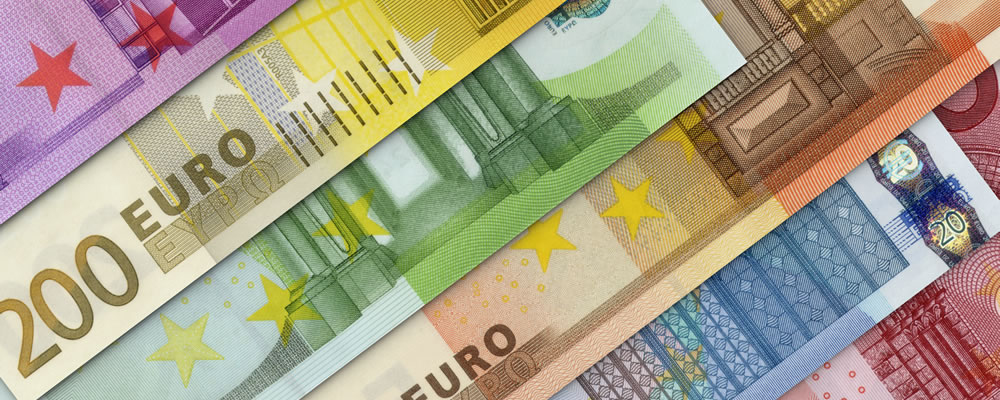With market sentiment remaining volatile in the wake of the US election Euro exchange rates have been prompted to trend higher, capitalising on the latest dip in US Dollar demand.
- Weaker German GDP failed to weigh on Euro demand – EUR exchange rates bullish in spite of slowed growth
- Downside surprise from UK inflation data boosted EUR GBP exchange rate – Chances of more hawkish BoE outlook remained limited
- US political uncertainty weighed on USD appeal – Investors remained jittery over lack of clarity on Trump economic policies
- Euro strength forecast to wane with mounting domestic political risk – Prospect of Italian constitutional referendum defeat could limit EUR gains
While the Pound has benefited strongly from recent market uncertainty the latest raft of UK inflation data has seen the EUR GBP exchange rate making strong gains.
Euro (EUR) Exchange Rates Trended Higher Despite Rising Political Risk Factor
Demand for the Euro (EUR) picked back up on Tuesday morning, despite persistent worries over the mounting political risk within the Eurozone. Investors were not discouraged by the news that the German economy had underperformed in the third quarter, even though GDP was found to have weakened from 3.1% to 1.5% on the year. This suggested that the Eurozone’s powerhouse economy has come under greater pressure as its exports to the UK softened. Nevertheless, with Italian growth bettering expectations and calls from President Obama for Greece to receive ‘meaningful debt relief’ the appeal of the single currency has improved.
Should progress in Greece fail to materialise, at least as rapidly as investors hope, then EUR exchange rates are likely to falter. Any resurgence in US Dollar (USD) sentiment could see the Euro return to a downtrend, particularly if signs continue to point towards the strengthening of the populist wave threatening to engulf the Eurozone. Higher expectations of the European Central Bank (ECB) extending its quantitative easing program in December could also put pressure on the single currency in the near term.
Weaker UK Inflation Offered Boost to EUR GBP Exchange Rate
The UK Consumer Price Index unexpectedly weakened in October, with inflationary pressure dipping from 1.0% to 0.9% on the year in defiance of forecasts. This seemed to reduce the odds of the Bank of England (BoE) raising interest rates sooner rather than later, given that policymakers have already expressed a willingness to look through some of the increase in inflation that has been driven by the weakness of the Pound (GBP). However, inflation still looks set to rise markedly over the coming months thanks to a much sharper increase in the corresponding Producer Price Index, with producers unlikely to absorb rising costs indefinitely.
Despite fresh concerns over the UK government’s Brexit plan, with reports circulating that it could be six more months before a negotiating position is reached, the Euro Pound (EUR GBP) exchange rate was encouraged to trend higher. However given that Sterling has benefitted from the recent sense of market turmoil this weakness could prove short-lived, as Lee Hardman, currency analyst at MUFG, noted:
‘After already adjusting sharply lower the Pound is better priced for higher political risk. A shift in focus away from the UK would help to improve the relative appeal of the Pound. A rise in European political risk in the year ahead could result in the Pound outperforming relative to bearish expectations. During the euro-zone debt crisis the Pound benefitted from being viewed as a regional safe haven.’
Continued Sense of Political Uncertainty Weighed on Volatile US Dollar (USD) Demand
After its recent bullish run the US Dollar began to fall back on Tuesday, as investors continue to digest the implications of a Donald Trump presidency. Despite the market-positive nature of pledges to cut taxes and boost infrastructure spending the continued sense of uncertainty that surrounds the new administration remains a concern. The untested and unclear nature of the Republican candidate seems set to maintain an element of downside influence on the ‘Greenback’, encouraging further volatility for the Euro US Dollar (EUR USD) exchange rate.
Speculation is likely to continue over the odds of the Federal Reserve raising interest rates before the end of the year, a prospect that has remained elevated despite the outcome of the presidential election. Comments from a number of Fed officials have raised the suggestion of a December rate move, although dovish words from Fed Chair Janet Yellen could dampen the odds on Thursday. Stronger showings from the latest advance retail sales data and Consumer Price Index could boost the appeal of the US Dollar, with positive data increasing the case for policymakers to return to the monetary tightening cycle.
Current Interbank Exchange Rates
At the time of writing, the Euro Pound (EUR GBP) exchange rate was on a bullish run around 0.86, while the Euro US Dollar (EUR USD) pairing was making gains in the region of 1.07.



